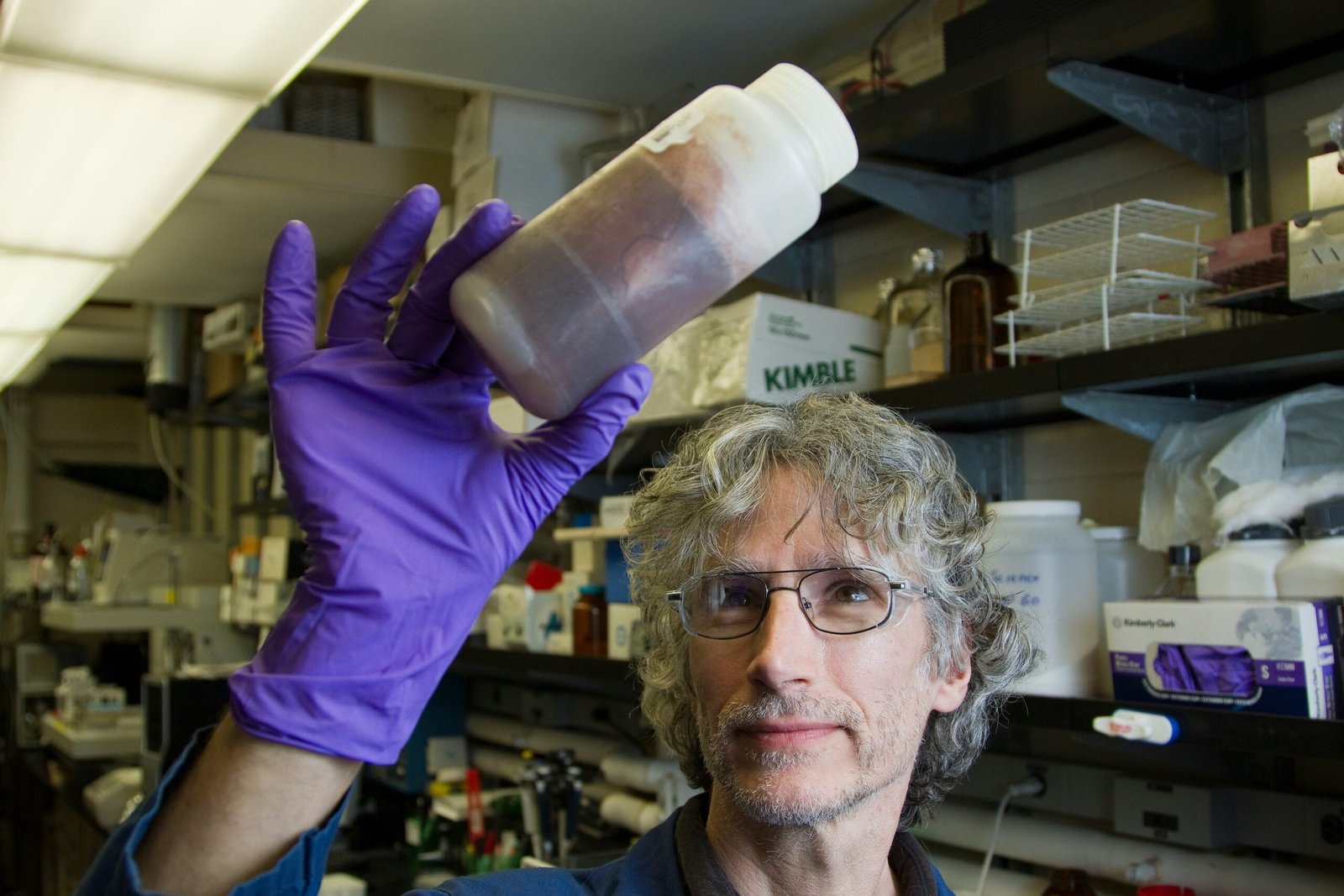Introduction to Human Enhancement
Human enhancement through biotechnology refers to the use of various technological advancements to improve human capabilities, both physical and cognitive. This concept has gained traction in contemporary society, particularly as notable strides in genetic engineering, cybernetics, and pharmaceuticals continue to emerge. While the term ‘human enhancement’ may elicit a range of responses, including excitement and apprehension, it is crucial to recognize its historical context and evolution.
Historically, the notion of enhancing human abilities is not entirely new. Ancient civilizations engaged in practices aimed at improving health and extending life, such as herbal remedies and physical conditioning. However, the modern era has witnessed a transformation due to biotechnological innovations that provide unprecedented means of enhancement. These advancements allow for alterations at a genetic level, manipulation of biological systems, and integration of technology with the human body.
In the realm of genetic engineering, tools like CRISPR-Cas9 have revolutionized how we approach hereditary conditions and enable potential enhancements to attributes such as strength, intelligence, and longevity. Cybernetics, meanwhile, bridges the gap between machines and biology, allowing individuals to augment their bodily functions with electronic devices, creating a new frontier in personal enhancement. Pharmaceuticals, too, play a significant role, as compounds designed to improve cognition or physical performance are increasingly prevalent in both therapeutic and enhancement contexts.
The relevance of human enhancement in today’s society cannot be understated. As we navigate a rapidly evolving technological landscape, the ethical implications of these enhancements will undoubtedly provoke intense debate. Society must address concerns related to equity, consent, and the potential consequences of redefining what it means to be human, as the boundary between enhancement and “normal” capabilities becomes increasingly blurred. Understanding the foundational elements of human enhancement through biotechnology will help us engage in informed discussions about its future trajectory.
Types of Biotechnological Enhancements
Biotechnological enhancements have rapidly evolved, giving rise to various methods aimed at improving human abilities and health. These enhancements can be broadly categorized into four main types: genetic modifications, cognitive enhancers, physical augmentations, and therapeutic enhancements. Each type serves distinct purposes and offers unique functionalities that reflect the advancements in biotechnological research.
Genetic modifications involve altering an individual’s DNA to enhance certain traits or eliminate genetic diseases. This technique has garnered significant attention due to its potential to eradicate hereditary conditions. Current research focuses on technologies such as CRISPR-Cas9, which allows for precise editing of genetic material. Ethical concerns, however, arise regarding designer babies and unintended consequences on human evolution.
Cognitive enhancers are substances or techniques designed to improve mental functions such as memory, attention, and creativity. They include pharmaceuticals like nootropics, which are often utilized by students and professionals aiming to enhance cognitive performance. Moreover, advancements in neurostimulation and brain-computer interfaces are emerging as possible avenues for augmenting cognitive capabilities. The efficacy and long-term effects of these enhancements are still under consideration in scientific studies.
Physical augmentations refer to enhancements that improve the body’s physical capabilities, which can include prosthetic devices, exoskeletons, and bioengineered tissues. These innovations not only boost bodily efficiency but also offer rehabilitation solutions for individuals with disabilities. Research continues to progress in this area, focusing on making these implants more effective and widely accessible.
Lastly, therapeutic enhancements are aimed at treating or managing health conditions through biotechnology. This encompasses gene therapy, regenerative medicine, and advanced drug therapies, which target specific ailments at a molecular level. The field is continuously evolving, with ongoing trials and approvals that hold promise for improved health outcomes.
Ethical Theories in Human Enhancement
The discourse surrounding human enhancement through biotechnology necessitates a robust examination of various ethical frameworks that contribute to understanding its implications. Among these frameworks, utilitarianism, deontology, virtue ethics, and bioethics stand out as significant theories influencing the conversation on ethical human enhancement.
Utilitarianism, a consequentialist theory, posits that the moral worth of an action is determined by its outcomes, specifically the greatest happiness principle. In the context of human enhancement, this perspective raises questions about the maximization of well-being. Proponents argue that biotechnology can alleviate suffering and improve overall quality of life, thereby aligning with utilitarian ideals. Conversely, critics caution against potential negative consequences, such as societal inequalities, which may arise from unequal access to enhancement technologies. This critique highlights the importance of considering how these advancements affect the overall happiness of society.
Deontological ethics, attributed to philosophers like Immanuel Kant, focuses on the inherent morality of actions rather than their outcomes. From this perspective, human enhancement may be viewed as ethically problematic if it violates moral duties or rights. The potential to compromise human dignity or autonomy is a central concern here. Specifically, enhancing human capabilities might lead to coercive scenarios, where individuals feel pressured to adopt enhancements to remain competitive or accepted, thus undermining their autonomy.
Virtue ethics shifts the focus from actions and consequences to the character and intentions of the individuals involved. Advocates of this theory emphasize the significance of fostering virtues such as responsibility and humility in the face of new biotechnologies. The challenge lies in ensuring that the pursuit of enhancement does not compromise these virtues, promoting a balanced approach to biotechnological advancements. In this context, virtue ethics serves as a reminder of the ethical responsibility that accompanies the ability to manipulate the human condition.
Finally, bioethics serves as an interdisciplinary field that integrates ethical theory with practical applications in healthcare and biotechnology. By addressing the complex interactions between technology, society, and ethics, bioethics provides a comprehensive framework for evaluating the moral dimensions of human enhancement. Each ethical theory contributes uniquely to the ongoing discussion about the implications of biotechnological advancements in enhancing human capabilities.
Potential Benefits of Human Enhancement
The advancements in biotechnology have opened up avenues for human enhancement that were previously considered the domain of science fiction. One of the most significant potential benefits of human enhancement through biotech is the improvement in health outcomes. With the ability to modify genetic predispositions to diseases, there is a strong possibility that individuals could achieve longer and healthier lives. Techniques such as CRISPR gene editing offer the opportunity to eradicate genetic disorders that have historically plagued families, potentially reducing healthcare costs and improving the quality of life for many.
Another area where human enhancement can make a profound impact is in physical and cognitive performance. Biotech innovations hold promise for augmenting physical abilities, such as strength, endurance, and agility, enabling individuals to perform at levels that were once considered elite. Furthermore, cognitive enhancements could result in improved memory, increased attention span, and greater problem-solving capabilities. By allowing humans to surpass their natural limitations, these enhancements could pave the way for a more effective workforce and accelerate innovation in various fields.
The possibility of eradicating certain diseases through human enhancement is another significant benefit that warrants consideration. Vaccines andGene therapy could be leveraged to create immunity against previously untreatable ailments, reducing the global burden of disease. Such advancements not only have the potential to save lives but can also alleviate the economic strain caused by healthcare systems dealing with chronic conditions.
Ultimately, the integration of biotech for human enhancement has the potential to transform lives fundamentally. Enhanced individuals may experience heightened overall well-being and productivity, thereby contributing more effectively to society. As we explore these benefits further, it becomes increasingly clear that the ethical consideration of such advancements is necessary to ensure their responsible implementation.
Risks and Concerns Associated with Biotech Enhancements
Biotechnology offers immense potential for enhancing human capabilities, but it is imperative to critically analyze the associated risks and ethical concerns. One significant risk is the potential for unintended consequences arising from genetic modifications or bio-enhancements. The complexity of human biology means that interventions intended to improve health or performance could inadvertently lead to adverse reactions or unforeseen health issues. For instance, altering a gene to enhance cognitive function may disrupt other crucial biological systems, leading to unpredictable health outcomes.
Moreover, issues of consent and autonomy come to the forefront in discussions about human enhancement. If individuals are pressured into undergoing enhancements, particularly in competitive environments such as sports or employment, the authenticity of their consent can be called into question. Questions surrounding who has the right to decide which enhancements are acceptable also emerge, raising concerns about coercion and the genuine autonomy of individuals in their enhancement choices.
Societal inequities could be exacerbated by biotech enhancements, creating a divide between those who can afford technological advancements and those who cannot. Such disparities may result in a socio-economic hierarchy, where enhanced individuals enjoy better opportunities and quality of life, further marginalizing unenhanced populations. This leads to deeply concerning implications regarding social justice and equality.
Furthermore, the moral implications of “playing God” resonate in public discourse surrounding human enhancement. There is ongoing debate about whether it is ethically acceptable to modify human traits and characteristics, raising questions about the human identity and the natural order. This moral quandary highlights the need for robust debates around the ethical framework guiding the development and application of biotechnologies, ensuring that advancements serve humanity without undermining core social values.
Regulatory and Governance Issues
The regulation of biotechnology, particularly in the context of human enhancement, presents a complex array of challenges and opportunities. As advancements in genetic engineering, neurotechnology, and other enhancement methods rapidly progress, a robust regulatory framework is essential to ensure safety, efficacy, and ethical considerations are adequately addressed. Various governmental and non-governmental organizations play pivotal roles in establishing these regulations, with the aim of balancing innovation with public welfare.
In the United States, the Food and Drug Administration (FDA) oversees the approval of many biotechnological products, ensuring that they meet stringent safety standards before reaching the market. Similarly, the European Medicines Agency (EMA) conducts evaluations of medicinal products in the European Union, aiming to protect public health and safety while facilitating innovation in biotechnology. However, both agencies face the challenge of keeping pace with rapidly evolving technologies, which often outstrip existing regulatory frameworks.
Ethical guidelines also play a critical role in guiding the use of human enhancement technologies. Institutions such as the National Institutes of Health (NIH) and the World Health Organization (WHO) provide ethical frameworks that inform research practices and application in the field of biotechnology. These guidelines emphasize principles of respect for persons, beneficence, and justice, ensuring that the interests of individuals and society are protected as new enhancements emerge.
Moreover, international collaboration is emerging as an essential component in the regulatory oversight of biotechnology. As human enhancement technologies transcend borders, harmonizing regulations between countries can foster a more coherent global approach, minimizing regulatory discrepancies that can lead to ethical dilemmas or exploitation. Ultimately, establishing an effective governance structure around biotechnology and human enhancement is critical to navigating the complex ethical landscape this field presents.
Public Perception and Cultural Impacts
The public perception of human enhancement through biotechnology is a complex and multifaceted issue influenced by various cultural, social, and ethical factors. Different societies exhibit a wide range of attitudes towards bio-enhancements, often rooted in historical contexts, religious beliefs, and prevailing moral frameworks. While some cultures embrace the advancements in biotech as a means to improve human capabilities, others express skepticism or outright opposition, highlighting a divide that is emblematic of broader societal values.
Fear and acceptance often coexist in discussions surrounding human enhancement. On one hand, individuals may fear the potential consequences of biotechnological interventions, such as the risk of unforeseen side effects or the ethical implications of altering human biology. On the other hand, many embrace the potential for enhancements to improve quality of life, medical outcomes, and to enable significant cognitive and physical advancements. This dichotomy creates a landscape where public opinion is heavily influenced by individual experiences and socio-economic factors.
The media plays a critical role in shaping public perception by framing discussions around biotechnology advancements. Coverage often ranges from sensationalized accounts of ‘playing God’ to celebrations of successful enhancements that lead to increased capabilities. These portrayals can significantly impact societal norms and perceptions, influencing how willing individuals are to accept or reject enhancements. As narratives evolve, they shape the collective understanding of enhancement technologies, often highlighting the differences in acceptance based on demographic factors such as age, education, and cultural background.
Furthermore, the conversation surrounding the enhancement of human abilities is inherently tied to concepts of equity and access. As biotechnological solutions become more accessible, disparities in who can benefit from these advancements could exacerbate existing social inequalities. Thus, public perception is not only a reflection of individual sentiment but also a barometer for broader cultural attitudes towards the implications of enhancing human capabilities through biotechnology.
Future Implications of Biotech Enhancements
The rapid advancements in biotechnological enhancements raise significant implications for society, potentially transforming social dynamics and relationships. As these technologies become more accessible, they could create categories of individuals who benefit from enhanced capabilities, ranging from cognitive improvements to physical augmentations. This raises critical questions about equality and equity within communities. Not all social groups may have equal access to these enhancements, leading to potential disparities between those who can afford these technologies and those who cannot. Such a divide could foster a new form of inequality, separating individuals into segments based on their enhanced or non-enhanced status.
In exploring the future of biotechnology, it is essential to consider how these enhancements might alter the very fabric of society. Enhanced individuals might experience new forms of discrimination, while those who choose not to undergo enhancements may feel marginalized. This could result in a societal tiering system based on enhancement status, posing challenges to social cohesion and collaborative community life. The implications extend beyond social interactions and into the workplace, where enhanced individuals might dominate specific job sectors, thereby creating a competitive landscape that disadvantages non-enhanced candidates.
Furthermore, these advancements raise profound philosophical questions regarding identity. As human enhancement technologies progress, they challenge the conventional understanding of what it means to be human. The integration of biological enhancements may lead individuals to redefine self-concept and purpose, potentially diminishing aspects of human experience deemed essential, such as vulnerability and limitation. As biotechnology continues to evolve, it invites a broader discourse on the ethical frameworks that must accompany these changes, ensuring that discussions around enhancement technology consider the essence of humanity and the values embedded within our societal structures.
Conclusion and Call to Action
In conclusion, the ethical discourse surrounding human enhancement through biotechnology is both complex and essential given the rapid advancements in this field. Throughout this blog post, we explored the various dimensions of human enhancement, including the potential benefits such as improved health, increased cognitive abilities, and overall enhancement of human capacities. However, these advantages come coupled with profound ethical considerations that cannot be overlooked. Issues of equity, consent, and the potential for societal divides present significant challenges that merit careful examination.
As advancements in biotech continue to unfold, it is paramount for individuals and society to engage in informed discussions about the implications of these technologies. This engagement can take various forms, including participating in community forums, contributing to academic research, or simply engaging in conversations with peers about the ethical landscapes of human enhancement. Understanding the nuances of these ethical concerns will equip individuals with the tools necessary to critically evaluate the potential outcomes of embracing such technologies.
Furthermore, it is vital for policymakers, scientists, and ethicists to collaborate in establishing guidelines and regulations that will govern the responsible use of biotechnological enhancements. Such frameworks can help safeguard public interest, prevent inequitable access, and ensure that all enhancements are conducted with informed consent. Everyone has a role to play in shaping the future of biotechnology, and personal responsibility should be a priority as we navigate these uncharted waters.
Ultimately, the ethical considerations surrounding human enhancement through biotechnology call for ongoing dialogue and deliberation. Each of us has the opportunity to contribute to this conversation and to foster a more enlightened society that is prepared to address the challenges and opportunities posed by these transformative technologies.



